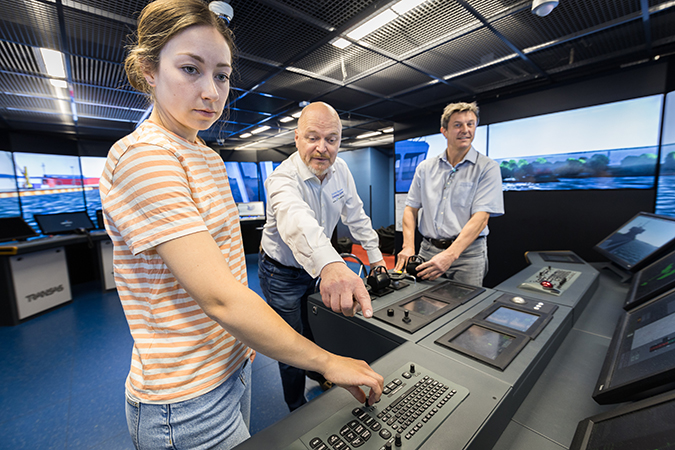MERSol – Maritime Engine Room Simulator online
Maritime Trade accounts for approximately 90% of trade in the world today, but the technology of diesel engines has not changed over the decades. Engines have become more
energy efficient due to regulations set by IMO to fullfil marine industry emission requirements. New building ships are ever more complex as different systems are integrated together
so that automation is running and monitoring all systems together. This integration has solved many problems, but at the same time created new errors which marine engineers are not
familiar with. Some of them can be fatal and risking the crew, ship and environment. New fuels are taken in use; there are already totally emission free while maneuvering as using
batteries only, yet there are no study books for these new technologies yet.
The STCW International Convention of IMO sets minimum qualification requirements for being a seafarer and is used in formal training of seafarers. A skills gap has emerged between
traditional Maritime Education; the needs of the industry and seafarers ought to be able to apply increasing complex systems, regulations, and technologies especially when pandemic
occurred, and traditional teaching method could not be used. Due to climate change, maritime industry must take steps to more environmentally friendly shipping. Emissions are
monitored constantly by aiming to reduce harmful emissions; at 2050, very strict regulations concerning harmful emissions are fully set to the maritime industry. Engines has become
more energy efficient due to regulations set by IMO to full fil marine industry emission requirements. The EU 2050 objectives set intermediate targets for Eco-Efficient Vessel Emission
Reduction for key pollutants, but so far this has not contributed to concrete study modules.
In IO1, MERSol project will produce new study modules with assessment study module following ensuring the theory knowledge. All the new regulations are included and tested in
assessment study modules. In IO2, the specific software, ERS online, will test the knowledge in online practice. MERSol supports the uptake of innovative approaches and digital
online technologies for teaching and learning online to ensure these qualifications requirements to be addressed. IO3 will present a guide to related industries. Designing and developing the study modules and assessment modules on a specific e-learning delivery platform allows cadets and seafarers to access the training programme and learning materials
over the internet at any time and any place. This is particularly relevant in the Maritime sector where seafarers are highly mobile and have less opportunity to take long face-to-face
training courses whilst they are working.
Primary target groups are new marine engineer cadets but also deck cadets and all mariners already at sea to update their knowledge of automation and digitalisation. Also, all
European HEI and VET centers, together with maritime industry as a whole are target groups taking into consideration ship building and ports. This proposal will focus of the horizontal
priorities of supporting individuals in the maritime sector. To acquire and develop key competences making them more relevant to the labour market needs updating their education
and training. MERSol study modules, assessment modules and ERS Online will not only provide this as training for new Cadets, but also as part of continuing VET for already qualified
seafarers. Together with the Multiplier Events organised in each participant country for wide dissemination, all partners will utilise their dissemination networks and will involve EU wide
networks in the project. Even up to 14,000 persons are expected to be reached within the project lifetime.
The partners bring together a unique blend of academic and SME partners from maritime cluster bringing such valuable and necessary experience that no single institution can hold.
Without all of this expertise, the project outputs would not be sustainable as they would not reflect industry and academic needs, the latest trends in e-learning as well as being
submitted for accreditation. The project is innovative as the Marine Engine Room Simulator online system has not been initiated before. It will take full advantage of digital technologies
and deliver training and monitoring application at the workplace instead of relying to the traditional means of training that do not correspond to the actual needs of the target group.
Especially during the pandemic and lockdown, ERS online will give a learning opportunity to marine engineering studies as offering replacement to the mandatory onboard training.


